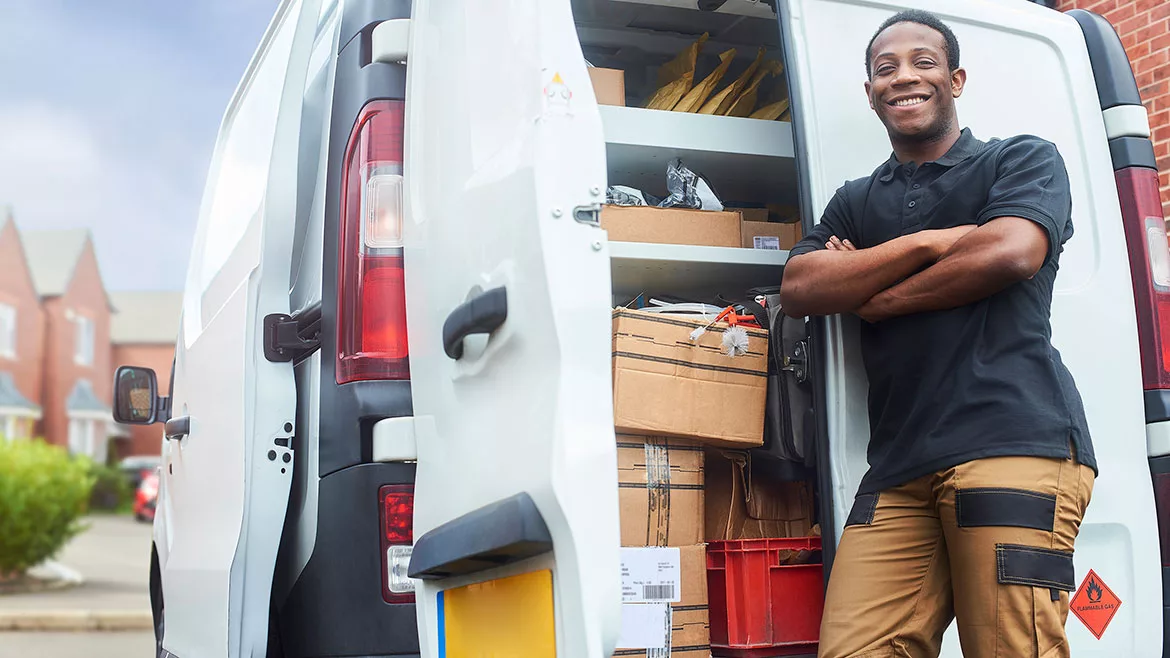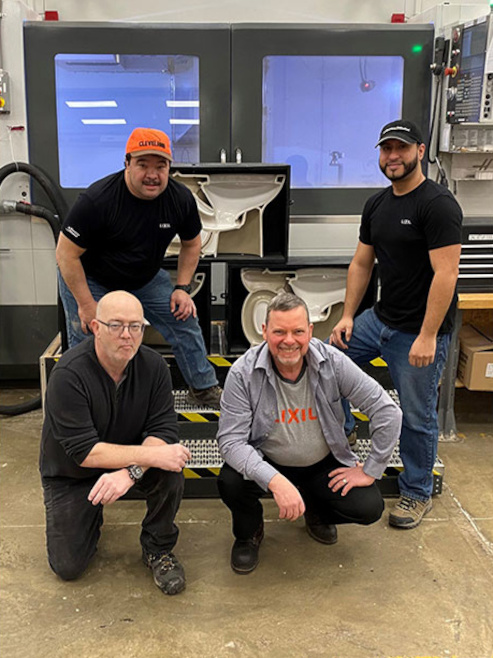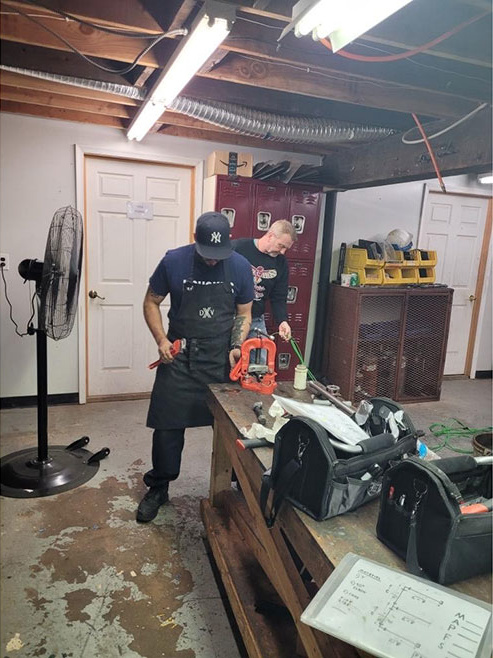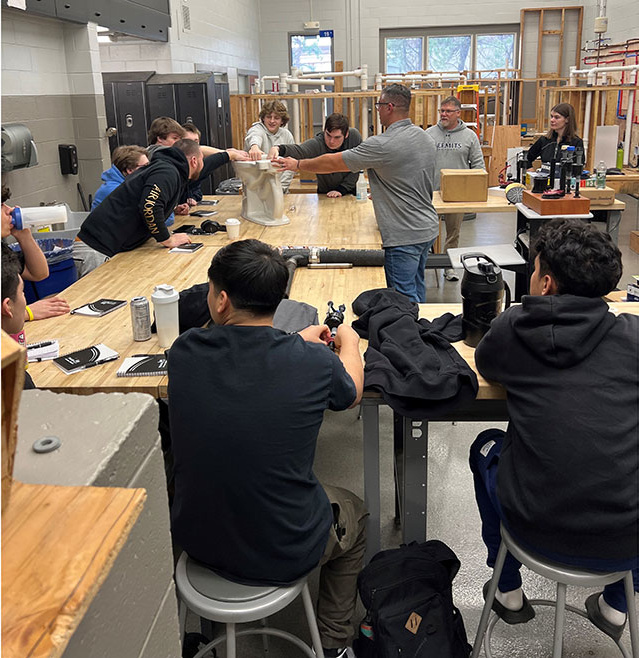Guest Editorial | Kellene Safis
Shattering stereotypes to shape the future of plumbing
Revolutionizing the flow

Lead image courtesy of MartinPrescott / E+ / Getty Images.
Beneath the everyday flow of life lies an unseen crisis: the U.S. is grappling with a critical shortage of 500,000 skilled plumbers. If left unaddressed, this gap will widen to 550,000 by 2027, bleeding the economy of $33 billion annually. This stark reality, highlighted by LIXIL's recent plumbing study, points to a deeper issue plaguing the plumbing profession.
Despite outdated stereotypes, plumbing demands a high level of skill and education, with professionals undergoing two to five years of rigorous training. This isn't just about fixing leaks; it's about creative problem-solving and meticulous execution in a field where flexibility and collaboration are key, offering a unique blend of job satisfaction and work-life balance.


In 2023, TradeUp impacted 1,000 students across 40 vocational schools nationwide, delivering an in-depth look at the plumbing industry. It offered hands-on education through training walls and product demos, introducing students to the latest technologies and practices.
Now is our chance to turn the tide — to elevate the image of plumbing and spark interest among the population. By reshaping perceptions and valuing the critical role plumbers play in our daily lives, we can address this shortage and pave the way for a future where the water infrastructure is not just maintained but thrives.
Dismantling stereotypes within the plumbing industry
Plumbing transcends fixing leaks and unclogging drains — it's the cornerstone of public health, ensuring clean water and sanitation. Yet, the shadow of stereotypes looms large over the industry, contributing to labor shortages. Fueled by outdated media portrayals and cultural biases, plumbing is often viewed as a "dirty job," skewing public perception and suggesting such careers are solely for men. This narrow view not only undermines the vital contribution of plumbers to society but also stifles diversity within the field. Women represent only 2.3% of the workforce in plumbing, pipefitting and steamfitting — what would this figure look like if we didn’t have these preconceived notions about plumbing?
Fostering inclusion to transform the industry
Tackling the stigma in the plumbing industry requires a united front from all corners: industry pioneers, legislators, educators and the media. Together, we must work to dismantle outdated perceptions and foster a more accurate view of the profession. This effort involves boosting investment in vocational education, expanding access to apprenticeships and work-study opportunities and shining a light on the varied and rewarding career paths plumbing offers. Such a push will draw in new talent and strengthen the workforce for future challenges.

Enhancing advocacy and outreach is crucial for breaking stereotypes inside and outside the plumbing industry. Effective public campaigns can highlight the essential role of plumbers in maintaining public health and safety. Additionally, advocating for policies that support vocational training can lay the groundwork for the future. By jointly tackling stereotypes and fostering inclusivity, we can erase the stigma, drawing in a new wave of skilled professionals.
Future-forward initiatives shaping our sector
Leaders across the industry, academia and government are proactively working to combat the stigma attached to plumbing by tackling the skilled worker shortage. Their efforts are centered on broadening access to training and cultivating a more inclusive culture within the plumbing sector.
Initiatives like American Standard’s TradeUp are equipping future plumbers with the crucial skills and resources needed for success in a digital era. In 2023, TradeUp impacted 1,000 students across 40 vocational schools nationwide, delivering an in-depth look at the plumbing industry. It offered hands-on education through training walls and product demos, introducing students to the latest technologies and practices.
Tools & Tiaras empowers young girls and women to explore careers in plumbing and other non-traditional fields. Through its workshops and camps, the organization transforms how society views women's roles in the workforce and builds a supportive network for those interested in skilled trades. In partnership with LIXIL, Tools & Tiaras conducts yearly plumbing workshops for young women, offering insights into product design and the importance of plumbing in creating sustainable infrastructure.
Fostering inclusivity in the plumbing sector is key to dismantling gender stereotypes and bridging the labor gap. By adopting inclusive hiring strategies, championing mentorship for underrepresented groups and actively advancing the careers of women and minorities, the industry can create a more welcoming and diverse workforce. Embracing diversity not only enhances the talent pool, but also drives innovation.
Shaping a new era for plumbing across generations
The plumbing industry is at a pivotal juncture — while faced with many long-standing challenges, we have so many opportunities for meaningful transformation. Already, we've seen significant progress. Taking on stereotypes directly, we can significantly alter the industry's path. Consider the potential: had 16,400 plumber roles been filled in 2022, the impacts could have been profound, including a $1.26 billion reduction in plumbing costs, $2.5 billion in stimulated economic activity and 35,600 new jobs across various sectors, according to a study sponsored by LIXIL.
Moving forward, it's imperative that we continue to dismantle stereotypes, foster inclusivity, and champion education. These actions are key to cultivating a thriving plumbing sector, free from the shadows of stigma. Through collective effort and commitment, we can ensure the plumbing profession is recognized for its essential role in our society, opening doors for everyone.
Looking for a reprint of this article?
From high-res PDFs to custom plaques, order your copy today!







